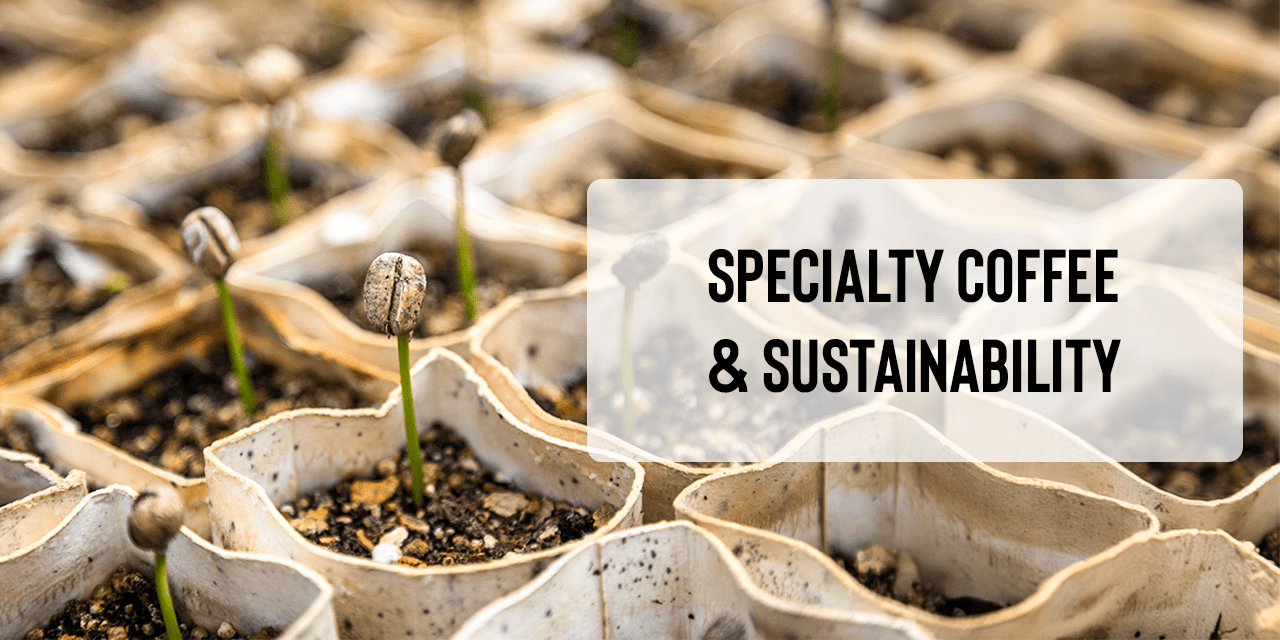With every passing day, more and more coffee lovers are switching to specialty coffee. Given that we are progressing in the Third Wave of Coffee, there is an emphasis on overall education about coffee. This includes its flavours, origin, quality and traceability.
The traceability factor has paved the way for a greater focus on sustainability in the coffee industry. The switch to specialty coffee has not only transformed the way we enjoy coffee but also our relationship with coffee production and the environment.
In this article, let us take a look at the key aspects of this relationship between specialty coffee and sustainability.

Direct Trade
An important aspect of sustainability in specialty coffee is the practice of direct trade. Many specialty coffee roasters in India actively engage with coffee planters to establish direct relationships. This promotes transparency, traceability and fair pricing.
Furthermore, cutting out intermediaries means farmers receive a larger share of the revenue. This enables them to invest in sustainable farming practices in addition to improving their living conditions.
Sustainable Farming Practices
Beyond direct trade, many coffee roasters purchase from or partner with coffee farmers who only employ sustainable farming practices. So, coffee farmers are increasingly adopting environmentally friendly farming practices. It includes shade-grown coffee cultivation, organic farming and water conservation measures.
Additionally, they focus on contributing to healthier ecosystems by preserving the biodiversity in coffee-growing regions.

Education and Skill Development
The growth of specialty coffee in India has led to increased interest in coffee education. This includes barista training, coffee cupping, and quality control. Coffee professionals, including roasters, baristas, and Q graders, are focusing on education and skill development.
The breadth of knowledge across the stages of coffee supply chain has elevated the overall quality standards of coffee. This contributes to the sustainability factor since there are skilled and knowledgeable individuals at every stage of coffee production.
Waste Reduction
Coffee farmers, roasters and consumers are also focusing on waste reduction. Sustainable practices including recycling coffee cherry pulp and reusing water in processing is becoming increasingly common. They are also finding innovative ways to repurpose coffee byproducts.

Certifications and Standards
Some Indian coffee producers seek certifications to demonstrate their commitment to sustainability. These certifications help consumers identify sustainable practices and also boost the international reputation of the producers. Some of the standards and certifications include Fair Trade, Rainforest Alliance, Organic and UTZ.
Final Takeaway
The rise of specialty coffee in India is linked intrinsically to the promotion of sustainability in the coffee industry. It is paving the way for a more sustainable and equitable future for everyone in the coffee space - from planters to coffee lovers who wake up to the fresh aroma of coffee every day.
These changes benefit both producers and consumers. While coffee producers are empowered to adopt sustainable practices, coffee lovers get access to better quality coffee with naturally robust and unique flavours.


























